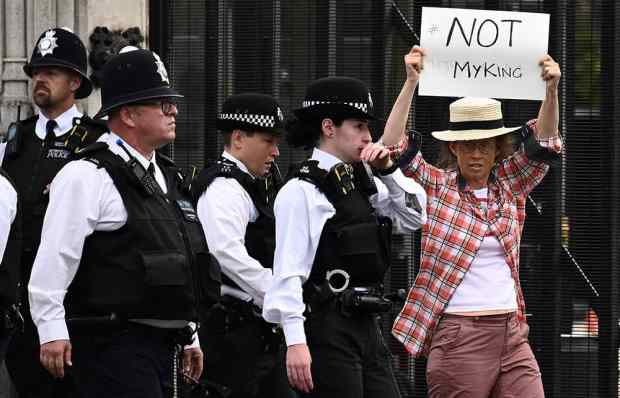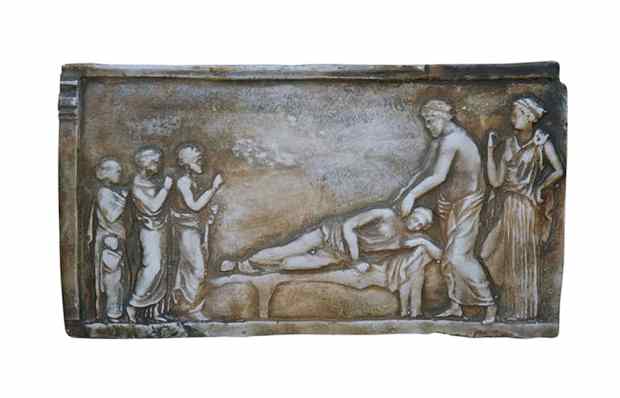The EU is a federation of states (Latin foedus, ‘treaty’, from the same root as fides, ‘trust, good faith’). But for how long can such a federation endure a recalcitrant member? At some stage the crunch will come, as it came for Sparta.
In 338 bc Philip II of Macedon, father of Alexander the Great, completed his conquest of the Greek city-states (poleis) and formed them — for the first time ever — into a political federation. All poleis sent representatives to the Council meetings, but executive power was invested in Philip, and when he was assassinated in 336 bc, in Alexander, it was Macedon that called the shots, and that was the end of it. Its purpose was to keep the poleis weak, and foreshadowed the end of that autonomy which had been such a spur to the classical Greek achievement.
Enraged that Philip had deprived it of its border territories, Sparta refused to join this League. But Philip did nothing, calculating that Sparta could be safely left to stew in its own juice. In 331 bc, however, with Alexander rampaging across Persia, and local Macedonian reserves depleted, Sparta declared for ‘liberty’ and started reclaiming its lost territories. But not for long: in 330 bc the Macedonian general Antipater added League members and mercenaries to his army, and smashed the Spartans at Megalopolis. There was no more trouble from them. The Greeks clearly preferred life under Macedon to that under Sparta.
And EU members clearly prefer life under Juncker to interference from Britain. Wisely. For Britain, having refused the euro, is (like Sparta) a de facto outsider. So those trapped in the euro are not about to risk the wrath of the Junckers by supporting it. Further, the EU (like Macedon) holds all the cards, and at some time will play them: join the euro and you are in; refuse and you are out.
This is why Juncker, a key player in the invention of the euro, has been appointed President of the Commission — to prepare for the end-game.
Got something to add? Join the discussion and comment below.
Get 10 issues for just $10
Subscribe to The Spectator Australia today for the next 10 magazine issues, plus full online access, for just $10.
You might disagree with half of it, but you’ll enjoy reading all of it. Try your first month for free, then just $2 a week for the remainder of your first year.













Comments
Don't miss out
Join the conversation with other Spectator Australia readers. Subscribe to leave a comment.
SUBSCRIBEAlready a subscriber? Log in